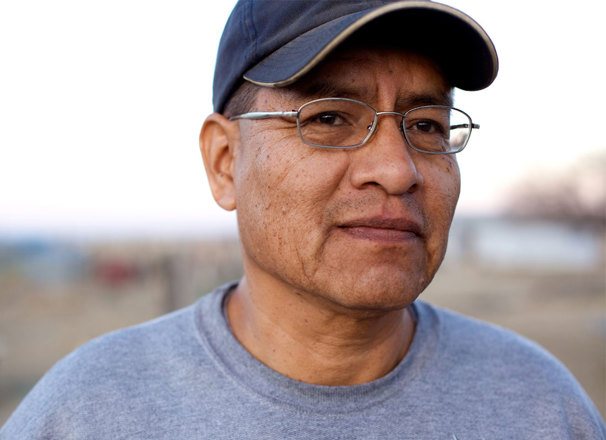
Creating opportunities for Indigenous workers is not only good ethics, but good business. Yet barriers to employment still exist in the eyes of some employers and workers.
A commitment to employing Indigenous workers shows leadership and brings companies the benefit of diverse perspectives. For those that work in remote areas and resource-based sectors, hiring Indigenous people also provides a ready labour pool and builds connections with local communities.
The role of employment counsellors
As an employment counsellor, you can help employers recruit candidates with the education, training, and skills they need—and provide the support to retain these workers and promote their success.
The employment of Indigenous people is a priority for government and many not-for-profit organizations. Counsellors can help by making employers aware of strategies for Indigenous hiring and inclusion, as well as funding and other supports that are available.
Legislation
The Alberta Human Rights Act [pdf] prohibits discrimination toward Indigenous people or those perceived as Indigenous people on any grounds within the legislation, including on the grounds of race, ancestry, or colour.
By law, employers must:
- Have equitable practices for hiring and promotion
- Provide an environment free of harassment
Workplace culture and anti-discrimination
An inclusive workplace demands day-to-day respect and equitable treatment for all employees. When working with employers, recommended that they:
- Have clear policies to deal with harassment, discrimination, and racism from co-workers or customers
- Provide diversity training for all employees, including managers
- Use performance appraisal tools that apply to all employees
- Clearly outline the standards for judging performance
- Include diverse religious holidays and cultural events in the company calendar—and celebrate them. This could include National Day for Truth and Reconciliation or Aboriginal Awareness Day.
Pre-employment programs
“One reoccurring barrier within our member Nations seems to be the lack of transportation or driver’s licences. Most of our member Nations are located in remote locations, which shows just how important it is for our clients to have a valid driver’s licence.”
Your clients may benefit from the following:
- The Government of Alberta’s Indigenous employment training programs, which support training and work experience that lead to employment.
- Indigenous Skills and Employment Training (ISET) funds various Indigenous service delivery organizations. These offer skills development and job training and can match employers with Indigenous employees.
Recruitment and hiring
Some employers—especially small and medium-sized businesses with limited resources—may not have in-house experience with finding and attracting Indigenous candidates who fit their hiring needs. As you build relationships with employers, you can introduce them to resources and strategies that will lay the groundwork for more diverse hiring.
Partnerships
Consider referring employers to specialized programs and partners that can support their recruitment efforts:
- The network of Indigenous Works offices links Canadian employers with Indigenous workers. Indigenous Works also offers advice and training for employers new to Indigenous recruitment.
- Trade Winds to Success provides pre-apprenticeship training and connects employers in the trades with qualified candidates.
- The Community Futures Treaty Seven Targeted Wage Subsidy Program has funding for employers to hire Indigenous workers who currently lack the skills or experience to compete for the job.
- The Canada-Alberta Job Grant encourages employers to apply on behalf of present or future employees for eligible training costs.
- The Alberta Jobs Now program will help cover wages or training costs of hiring workers to new or vacant positions.
- You might also suggest that employers partner directly with Indigenous communities to recruit workers and to design job opportunities.
Targeted job advertising
Many online job boards allow employers to market jobs to Indigenous job seekers. You can use these boards as a tool to identify potential employers for your clients, and you can also recommend them to organizations looking to connect with Indigenous talent. Examples include:
- The Government of Canada’s Job Bank for Indigenous peoples will automatically repost Alberta job ads to the Alberta Job Postings here on alis
- Indigenous Careers
- Indigenous Link
- First Nations Jobs Online
- Windspeaker
Hiring
Simple changes to hiring practices can help make opportunities more fair for Indigenous applicants. You might advocate for your clients by encouraging employers to:
- Review their job ads and remove non-essential requirements. Listing too many criteria may discourage good candidates from applying.
- Recognize that people can gain skills in different ways. Candidates may have the skills they need for the job even if they do not have years of experience or a specific level of education.
- Think about how cultural differences may affect interviews. Some Indigenous people may not want to speak to their accomplishments because boasting is against their values. They may prefer to focus on what they’ve achieved as part of a group rather than individually.
Youth programming
If you are a counsellor who works with Indigenous youth, you might also encourage employers in your network to create opportunities tailored to them. Strategies that can help pave the way to successful placements for young people include:
- Offering student internships or co-op positions
- Offering youth mentorship opportunities
- Sponsoring school or company site visits. For youth who live on reserves, the transition to city life may be intimidating. Such visits can help them become familiar with the urban setting.
Retention
“We feel that assisting our clients to get employed is half the battle—maintaining employment is key in ensuring our clientele are provided with the opportunity to provide for themselves as well as their families. This creates a ripple effect of positive energy within a community.”
A sense of competence and belonging are good indicators of an employee’s satisfaction on the job. If you sense that your client is concerned about the job’s requirements, suggest that the employer access training support through the Canada-Alberta Job Grant or Alberta Jobs Now program.
An inclusive environment will also encourage employee retention. Though many employers think their companies are free of bias, Indigenous employees who leave a job often do so because of negative stereotypes and a lack of cultural sensitivity. For employers looking for ways to create a more inclusive workplace, you can recommend the following best practices:
- Recognize that Indigenous cultures are not all alike. Most prefer a distinctions-based rather than a pan-Indigenous approach. If employers are looking to hire workers from a particular community, research the culture specific to that community.
- Provide Indigenous awareness training to other workers, particularly managers. This might include company-wide sensitivity training or information sessions with community Elders and Knowledge Keepers. Indigenous Works offers inclusion training for HR and leadership.
- Be sensitive to the barriers that many Indigenous people face, including racism, the traumatic legacy of residential schools, low self-esteem, poverty, remote communities, and inadequate housing.
- Provide flexible work policies to accommodate practical limitations such as access to transportation, childcare, and technology. Extend this flexibility to cultural activities and traditions.
- Be aware of the risk of isolation. Make a consistent, ongoing commitment to hire Indigenous people so workers can connect to Indigenous peers and role models in the organization.
- Offer mentorship and job coaching programs to help integrate workers into the workplace. These might involve Elders or Knowledge Keepers and programs that support cultural and traditional activities.
- Provide clear, transparent paths for advancement in the organization, including the necessary skills and training.



